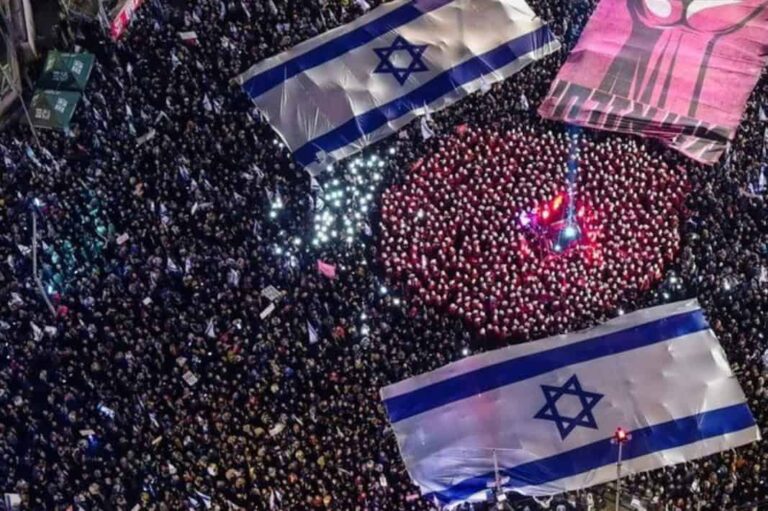Uprising in Israel after PM Netanyahu’s decision to fire Defense Minister opposed to justice reform. Thousands of people in the country have been protesting for weeks against the measure that seeks to overhaul the judicial system, proposed by the prime minister’s new government.
But what does the reform include? Protesters say it is a profound danger to Israeli democracy because it centralizes many powers previously entrusted to the Supreme Court, to the government itself.
A balancing of powers that would benefit Netanyahu’s executive at the expense instead of the judiciary. Instead, the government believes that the Supreme Court currently has too much freedom to intervene in a number of matters over which power would instead rest with the government.
Table of Contents
Israeli justice reform, is it politically motivated?
The reform was presented by Justice Minister Yariv Levin, and within the government it is supported by both the secular nationalist right-wing parties, such as Netanyahu’s and Levin’s own Likud, and the ultra-Orthodox parties.
Netanyahu is currently on trial for bribery and other crimes, and his defense believes the charges are only politically motivated.
The ultra-Orthodox, on the other hand, are protesting because they accuse the court of restricting their religious freedoms and privileges they enjoy, such as compulsory military service for all but the Orthodox.
Why the Supreme Court is so important in Israel
The Supreme Court plays a central role in the life of the country because of the nature of its political system. In fact, Israel has no real constitution (it does, however, have some basic laws on individual rights and citizen-state relations).
For this reason, the government has no real counterpart. The parliament has only one chamber, and the president has fewer powers than other parliamentary systems. For example, he does not have the ability to veto laws passed by parliament. And, cannot send a law back to the chambers.
Reform, minister’s dismissal, protests: what’s happening in Israel
It took only one day for Benjamin Netanyahu to fire Defense Minister Yoav Gallant, of the Likud, on the spot, guilty of calling for a freeze on the judicial reform that is splitting Israel.
A move that had been urged on him mainly by the far right in his government. Thus starting with National Security Minister, the hawkish Itamar Ben Gvir. Gallant had explained that he supported the reform but called for a freeze on it – until April 26, National Independence Day – because of the need “to regain national unity.” “Even now,” warned the now-former defense chief, “there is a clear, immediate and concrete danger to our national security”.
Words that cracked the executive front, given the support he had from other members of Likud, the premier’s own party, such as Yuli Edelstein or David Bitan.
Netanyahu’s goal is to increase the number of committee members to 11 (instead of today’s 9). This, by ensuring the prevalence of politically appointed members over technicians. Another intention of the premier would be to appoint David Amsalem (Likud and a well-known opponent of the Supreme Court’s powers) as second Justice Minister to flank the current head Yariv Levin. He is believed to be one of the two architects of the reform.
From airport to hospitals, the country on strike
Widespread popular protest against the Netanyahu government’s judicial reform triggered yesterday by the dismissal of Defense Minister Yoav Gallant.
At Ben Gurion Airport, all takeoffs are blocked at the initiative of its employees’ union. The protest was joined by the El Al company.
Also blocked by a surprise strike is the commercial port of Ashdod in southern Israel. In the morning, hospitals also proclaimed a sudden strike.
Universities announced an all-out blockade of classes. Because, they said, “there can be no academic life where there is no more democracy.”
Numerous shopping malls also closed, and unrest among Ministry of Justice employees. According to media reports, a closure of bank branches is also possible, although it requires special authorization.
Public transportation has continued providing its services. This is also to enable demonstrators to reach Jerusalem to participate in a large demonstration in front of the parliament.
Read also: Macron’s pension reform, another French Revolution? Massive demonstrations erupt across the country












